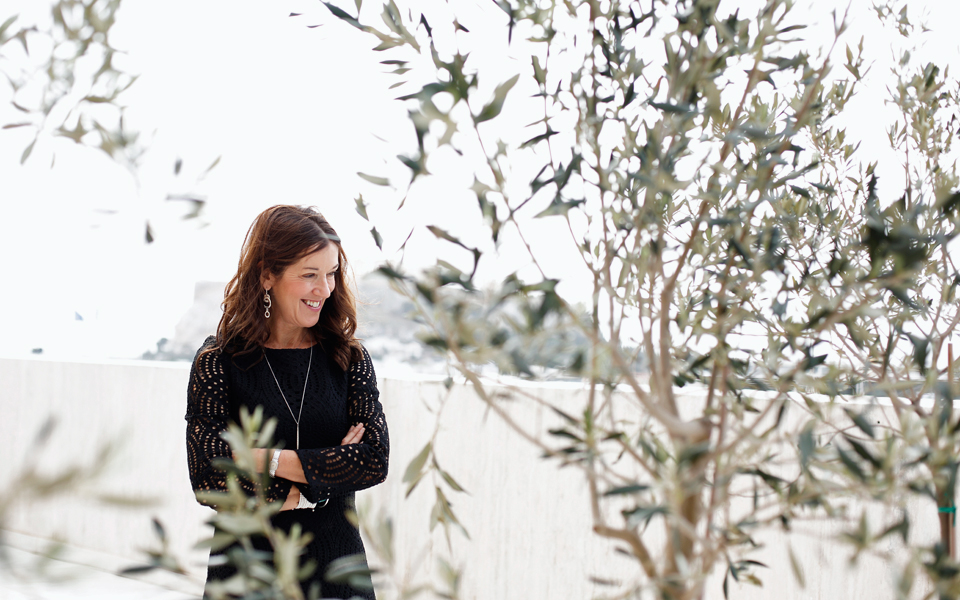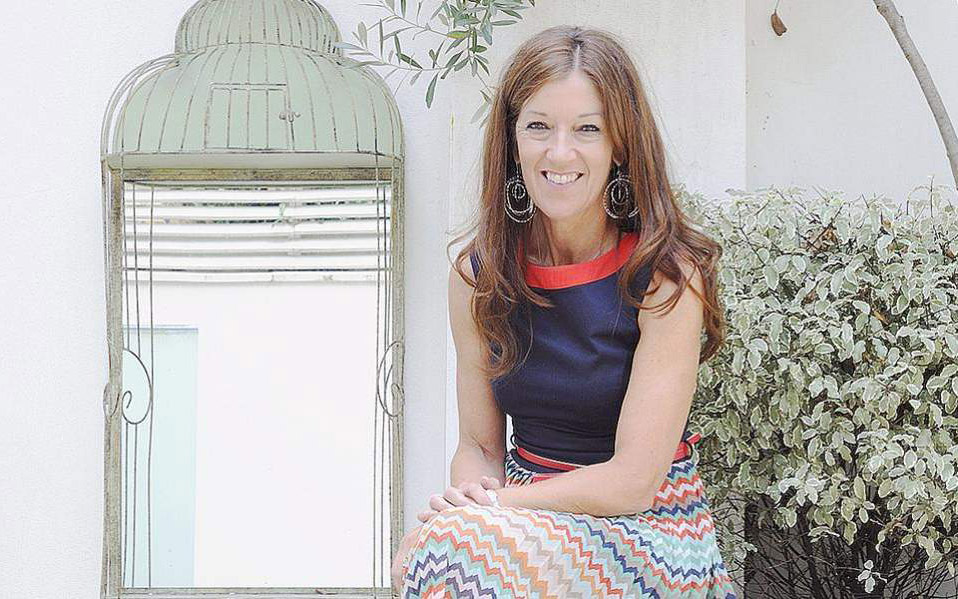“The Greeks have done remarkably well in dealing with the pandemic compared to other countries in Europe and America,” says British writer Victoria Hislop.
“When the restrictions are over, when the borders reopen and flights start again, Greece will be one of the first countries without cases. Then you might not want to have tourists from countries which are still dealing with the problem. We might be equivalent to the lepers trying to come to Greece, like a reverse stigma,” says the author of “The Island,” a historical novel centered in the former leper colony of Spinalonga, off the coast of Crete, which was published in 2005.
Isolated in her home in the English countryside, she is feeling something of the atmosphere she describes in her book and the television series it inspired – distinguished not just for the fascinating plot, but also for the humanity and compassion with which Hislop treats the subject.
The coronavirus pandemic coincided for Hislop with the death of her 92-year-old mother, Mary Hamson. “I think she was tired and decided that it was time to go. On the day of her cremation, a huge feather from some bird landed on the fence of my house, and I said to myself, ‘That’s it, she has flown away.’ I took it as a message of farewell, a sign,” Hislop told Kathimerini newspaper.
Lockdown measures prevented the family from holding a cremation ceremony. “So every member of the family, regardless of where they were geographically, connected on Zoom. We came together and said all the things we would have said if we’d been able to attend the funeral,” she says, adding that it is odd how “technology is replacing human contact.”
Hislop’s friends on Crete also tried to ease her grief. “They did something incredibly moving: They threw flowers in the sea at Mirabello in her memory. My mother loved that place and I believe that, wherever she is now, it was a gesture that gave her peace,” she says, noting that she had dedicated the “The Island” to her mother.

© Nikos Kokkas
“I often think of the Italians, the Spanish, the French and the Americans who will not be able to attend the funerals of their loved ones or be near them if they get sick. I also think of the sick who, instead of having their children at their bedside, have nurses covered head to toe so all they can see are their eyes. I think about Greece, which I cannot visit,” she says, explaining that she had to cancel a trip planned for mid-March to work with state broadcaster ERT, “which is adapting my novel ‘Cartes Postales from Greece,’ for television.”
“Another odd thing happened too: Just before the pandemic broke out, I had signed a contract for a new book that would be a sequel to ‘The Island,’ where I’m sure to describe the situation right now in some way,” says the writer.
Hislop fell in love with Greece as a teenager on a family holiday some 45 years ago. Returning frequently ever since and with a holiday home on Crete, she says she understands the challenge for Greeks of having to forgo the joys of spring and the company of their families and friends as a result of strict lockdown measures.
“Just consider the fact that compliance is working,” she advises. “Your attitude is protecting and saving lives and that should be your greatest comfort every time you are tempted to leave the house. As you know, the measures were late coming here in the UK, and you can see the results. I cannot understand the government’s decision not to impose social-distancing measures at the start of the crisis like other countries did. While you were shut up at home, we could go to pubs, restaurants and parks. What a shame that we don’t have a Sotiris Tsiodras! He must seem like an Olympian god to you,” she says, referring to the Greek government’s infectious diseases expert and spokesman, who appears on television every afternoon to provide an update on the course of the virus.
Hislop took a page out of the Greek book and started taking self-isolation steps before most other Britons, staying at home and being particularly rigorous about sanitation. In the meantime, a rapid rise in infections and deaths prompted a change of policy in the UK. Then Prime Minister Boris Johnson got sick and had to be hospitalized, spending a couple of days in intensive care.
“It was strange. On the one hand I was among those who were very critical of him over Brexit and his policy with the coronavirus. On the other, I happen to know his sister; she’s a friend. I know how worried she is about him. I wish him a speedy recovery,” says Hislop.
Are there any similarities between the world today and the experience of people on Spinalonga when it served as a leper colony from 1903 to 1957?
“Yes, I think we’re experiencing the same isolation and the same expectation for an effective cure or a vaccination that will protect us from the virus. Spinalonga’s residents also put their hope in the progress of medical science so that they could live among others, so that the sick didn’t have to be separated from the healthy. The vaccination gave them their freedom. I think that until that time comes for us, we will have to rely on antigen tests that are being developed so that we can know whether and how we can gradually return to some sense of normalcy,” says Hislop, who spent a year researching the colony, the island and its people.
What humanity is going through right now is “strange” and “historic,” and the writer believes that the pandemic will “change us profoundly.”
“Whether we live alone or with our partner or family, when this is all over, we will want a more meaningful relationship with our loved ones,” she says, adding that there are also lessons to be learned from older generations.
“I look at the patience, fortitude and stoicism with which they dealt with enormous difficulties. In contrast, we had become addicted to speed, looking for instant gratification. Now we might come to appreciate the small things,” says Hislop.
“To people feeling their courage flagging, I want to remind them that this too shall pass. Everything passes. And we will meet with our loved ones again and visit the places we love. We will bathe in the waters of the Aegean again. My God, I can’t even think of what I’ll do first when I come to Greece; I miss everything. Sometimes I’m gripped by the fear of what will happen if I can’t come back. I would happily spend two weeks or even longer in quarantine in my house in Crete if it meant being able to come to Greece,” she says.
“I want to say, in fact, that I have been asked to write three travel stories on Greece in as many weeks here in the UK. Even when we can’t come, we dream of it! And I don’t know about the summer of 2020, but I know that in 2021 you’ll have the record in arrivals,” says Hislop on an optimistic note.
This article was originally published at ekathimerini.com.












